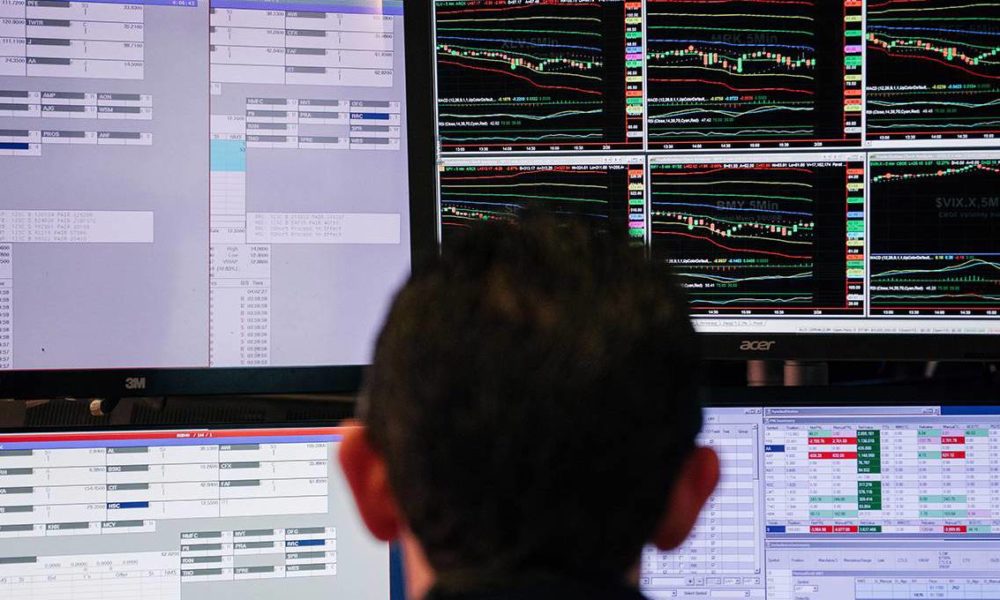Capitalism is destroying the planet. This form even more.
Yanis Varoufakis is a Greek economist, politician, leader of MeRA25 and DiEM25, former Greece’s Finance Minister, author and professor
Cross-posted from the website of DiEM 25

This is how capitalism ends: not with a revolutionary bang, but with an evolutionary whimper. Just as it displaced feudalism gradually, surreptitiously, until one day the bulk of human relations were market-based and feudalism was swept away, so capitalism today is being toppled by a new economic mode: techno-feudalism.
This is a large claim that comes on the heels of many premature forecasts of capitalism’s demise, especially from the left. But this time it may well be true.
The clues have been visible for a while. Bond and share prices, which should be moving in sharply opposite directions, have been skyrocketing in unison, occasionally falling but always in lockstep. Similarly, the cost of capital (the return demanded to own a security) should be falling with volatility; instead, it has been rising as future returns become more uncertain.
Perhaps the clearest sign that something serious is afoot appeared on August 12 last year. On that day, we learned that, in the first seven months of 2020, the United Kingdom’s national income had tanked by over 20%, well above even the direst predictions. A few minutes later, the London Stock Exchange jumped by more than 2%. Nothing comparable had ever occurred. Finance had become fully decoupled from the real economy.
But do these unprecedented developments really mean that we no longer live under capitalism? After all, capitalism has undergone fundamental transformations before. Should we not simply prepare ourselves for its latest incarnation? No, I do not think so. What we are experiencing is not merely another metamorphosis of capitalism. It is something more profound and worrisome.
Yes, capitalism has undergone extreme makeovers at least twice since the late nineteenth century. Its first major transformation, from its competitive guise to oligopoly, occurred with the second industrial revolution, when electromagnetism ushered in the large networked corporations and the megabanks necessary to finance them. Ford, Edison, and Krupp replaced Adam Smith’s baker, brewer, and butcher as history’s prime movers. The ensuing boisterous cycle of mega-debts and mega-returns eventually led to the crash of 1929, the New Deal, and, after World War II, the Bretton Woods system – which, with all its constraints on finance, provided a rare period of stability.
The end of Bretton Woods in 1971 unleashed capitalism’s second transformation. As America’s growing trade deficit became the world’s provider of aggregate demand – sucking in the net exports of Germany, Japan, and, later, China – the US powered capitalism’s most energetic globalization phase, with a steady flow of German, Japanese, and, later, Chinese profits back into Wall Street financing it all.
To play their role, however, Wall Street functionaries demanded emancipation from all of the New Deal and Bretton Woods constraints. With deregulation, oligopolistic capitalism morphed into financialized capitalism. Just as Ford, Edison, and Krupp had replaced Smith’s baker, brewer, and butcher, capitalism’s new protagonists were Goldman Sachs, JP Morgan, and Lehman Brothers.
While these radical transformations had momentous repercussions (the Great Depression, WWII, the Great Recession, and the post-2009 Long Stagnation), they did not alter capitalism’s main feature: a system driven by private profit and rents extracted through some market.
Yes, the transition from Smithian to oligopoly capitalism boosted profits inordinately and allowed conglomerates to use their massive market power (that is, their newfound freedom from competition) to extract large rents from consumers. Yes, Wall Street extracted rents from society by market-based forms of daylight robbery. Nevertheless, both oligopoly and financialized capitalism were driven by private profits boosted by rents extracted through some market – one cornered by, say, General Electric or Coca-Cola, or conjured up by Goldman Sachs.
Then, after 2008, everything changed. Ever since the G7’s central banks coalesced in April 2009 to use their money printing capacity to re-float global finance, a deep discontinuity emerged. Today, the global economy is powered by the constant generation of central bank money, not by private profit. Meanwhile, value extraction has increasingly shifted away from markets and onto digital platforms, like Facebook and Amazon, which no longer operate like oligopolistic firms, but rather like private fiefdoms or estates.
That central banks’ balance sheets, not profits, power the economic system explains what happened on August 12, 2020. Upon hearing the grim news, financiers thought: “Great! The Bank of England, panicking, will print even more pounds and channel them to us. Time to buy shares!” All over the West, central banks print money that financiers lend to corporations, which then use it to buy back their shares (whose prices have decoupled from profits). Meanwhile, digital platforms have replaced markets as the locus of private wealth extraction. For the first time in history, almost everyone produces for free the capital stock of large corporations. That is what it means to upload stuff on Facebook or move around while linked to Google Maps.
It is not, of course, that traditional capitalist sectors have disappeared. In the early nineteenth century, many feudal relations remained intact, but capitalist relations had begun to dominate. Today, capitalist relations remain intact, but techno-feudalist relations have begun to overtake them.
If I am right, every stimulus program is bound to be at once too large and too small. No interest rate will ever be consistent with full employment without precipitating sequential corporate bankruptcies. And class-based politics in which parties favouring capital compete against parties closer to labour is finished.
But while capitalism may end with a whimper, the bang may soon follow. If those on the receiving end of techno-feudal exploitation and mind-numbing inequality find a collective voice, it is bound to be very loud.


Be the first to comment